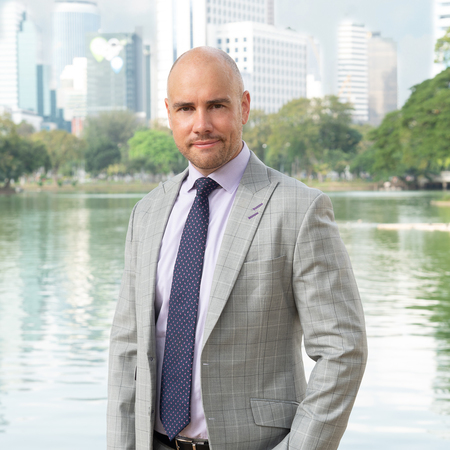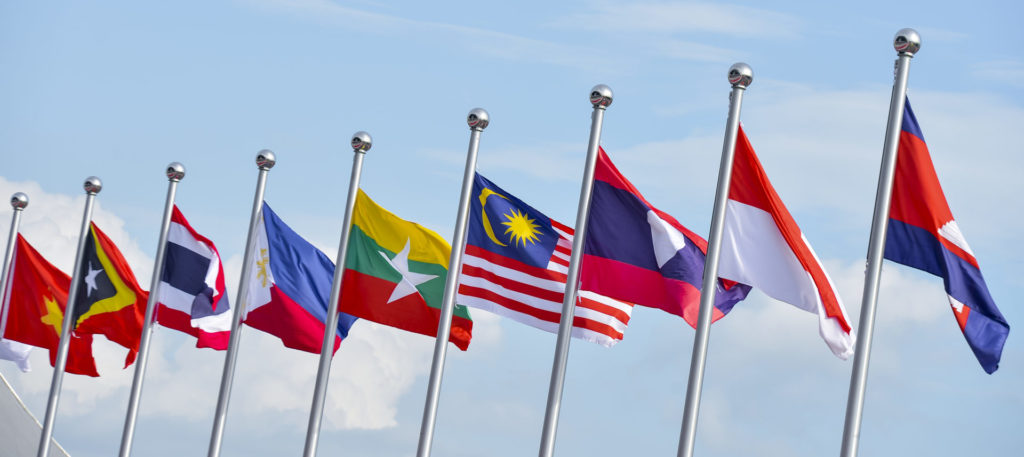Although the pandemic is the main problem facing most Thai businesses, it also provides an important opportunity to step back and address underlying issues which may be holding companies back in the long run.
Indeed, individual businesses can do very little to bring an end to COVID-19, but they are entirely in control of their own internal culture and operations. Understanding how to reshape company culture, and the way that such an initiative can bring about better business outcomes, is essential for success in a post-pandemic world.
I discussed these and other issues with my first-ever guest on the Inspiring Future Leaders podcast, Dr Larry Persons, CEO of CQ Leadership Consulting in Bangkok. Dr Persons helps companies overcome complex issues related to performance, productivity, and financial stability. He is the author of the ground-breaking book The Way Thais Lead, a cultural guide to the subtle but essential Thai concept of ‘face’, and how it impacts both personal and professional relationships around the country.
The following are some highlights from our talk on what successful leadership looks like in Thailand today. We discuss ways for leaders to navigate Thai culture, as well as how to balance sustainability and transformation in the workplace. We also cover Thailand’s quest to move beyond the pandemic, and make the most of the Industry 4.0 model.
Succession planning & benchmarking tools
Dr Persons elaborated on how Thai culture affects everything from leadership structure to the filtering of ideas:
> Family-run businesses in Thailand commonly retain senior staff for decades, and the predictable result is that they pursue consistency rather than greatness. Leaders need to push in a different direction, focusing less on functional issues and more on developing independent thinkers and future successors. By nurturing creativity, they can stop telling people what to do and start listening to insightful feedback and ideas.
> Psychometric testing is a valuable way to identify talent within an organisation, as opposed to doing the benchmarking yourself. This step is particularly important for succession planning, as it identifies the key characteristics (both positive and negative) of potential leaders.
> A tradition of seniority sometimes results in conflict, as second-generation leaders studying abroad may be barred from exploring their ideas by the first generation of leaders. Developing trust and maintaining relationships is especially important here, and can be achieved by showing respect to seniors and not having a rogue mentality.
To an extent, COVID-19 has softened the mindset of the older generation, and they are starting to recognise the need for change. But we must remember that a hierarchical company culture still exists in many places. This impacts the decision-making process, which cannot be changed by young leaders.
Traditional behaviour vs creativity and innovation
As Thailand moves towards Industry 4.0, older habits might get in the way of progress:
> In Thailand, it is common to avoid conflict or shy away from difficult conversations, in order to save face. But real progress depends on such challenges, as long as they are performed delicately. The right approach for criticism is crucial, and feedback needs to flow bilaterally. Leaders need to accept feedback for their own behaviour, while also empowering their subordinates and giving them opportunities to develop.
> Thai culture draws strong parallels between company and family. This idea has its merits, but unfortunately it doesn’t motivate excellence. I think business leaders should make a conscious effort to push this comparison away from ‘family’, and towards something like a sports team. In sports, the same camaraderie is there – but everyone still has to pull their own weight, and the common goal is kept clearly in sight.
> Setting salaries according to seniority is another cultural tradition that needs to be re-examined. Although older employees have specific salary expectations, especially as compared to their juniors, the plain fact is that companies need to get in the habit of paying people at all levels what they are really worth. Once again, the sports team comparison provides a good rule of thumb: Stars make more than average players, and age has very little to do with it. Furthermore, when people are rewarded for performance rather than seniority, they have a much better incentive to deliver value day in and day out.
Values, criticism, and the path to success
Thai people tend to be very direct in some situations, but indirect in others. Dr Persons shares how this cultural trait can impact companies:
> What people say to others, and how they perceive this feedback, is all culture-based. For example, one might say to another that they’ve gained weight. Although this kind of thing is most likely meant as a compliment, outsiders may take it the wrong way.
> At the same time, other types of opinions can break the rules of balance. Constructive criticism is often necessary for improvement, especially for the decision-makers who might need to hear it most. Cultivating an environment of trust, where this type of criticism is welcomed, is therefore very important.
> Future leaders may be unable to improve if they refuse to listen to feedback from the bottom of the corporate ladder. Leaders must learn to be comfortable having difficult and direct conversations, for the greater good of the company.
The road ahead
Dr Persons pointed out that the pandemic is helping to accelerate cultural change in Thailand, although not always voluntarily. Many hierarchical companies will stick to tradition, and refuse to change in the service of innovation. Yet these will tend to fade away, out-competed in the market by those that embrace a more agile approach.
To succeed in a post-pandemic world, future leaders need to understand how an understanding of culture is needed to empower talent and unlock modernisation in business. Leaders must set aside their ego, and devote their efforts to helping others around them develop confidence and skill. To earn the trust and respect of their colleagues, these leaders must honour the values of sensitivity and respect, while setting aside seniority and leading with an open mind.
When I asked Dr Persons how companies can find such leaders, he reminded me that they are not ready-made. Like any other skill, leadership takes time to develop – and companies should waste no time in training their people to lead effectively.
Leadership is never a finished product, but the right people have the experience, education, and mindset needed to start at an advanced level and continue to reach for excellence. Connexus Global can help you hire the right talent, and prepare your business for success on the road ahead. To learn more about how we can help, get in touch with us today.










